Staying Fit

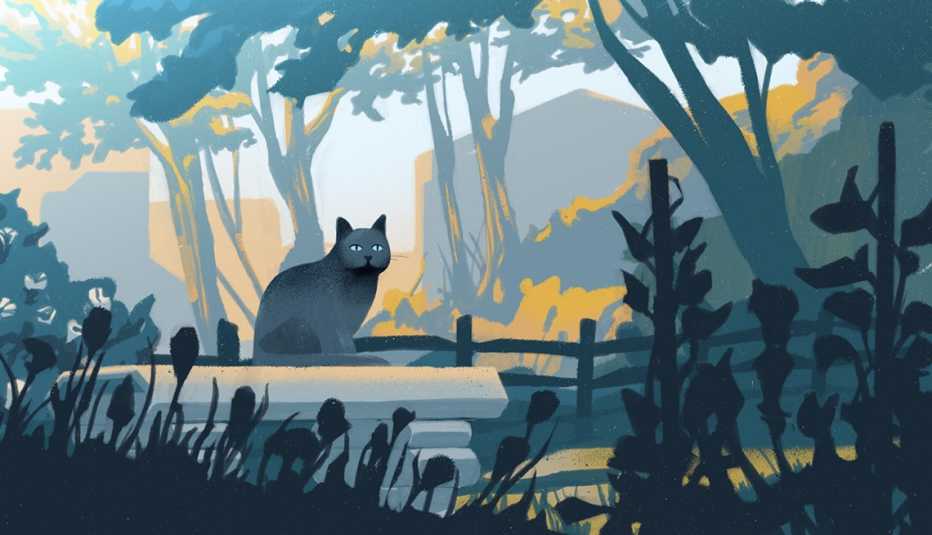
1
“Why don’t you start at the beginning?”
“The beginning? Well, I reckon that was the funeral. The funeral turned into a damned circus when the blackbirds showed up.” Blackberry sweet tea sloshed over the rims of two mason jars as Faylene Wiggins abruptly slapped her hand on the tabletop. “Wait! Wait! You can’t print that. My mama would wash out my mouth with her home-made lemon verbena soap if she knew I cursed for the good Lord and all the world to see in your article.”


AARP Membership— $12 for your first year when you sign up for Automatic Renewal
Get instant access to members-only products and hundreds of discounts, a free second membership, and a subscription to AARP the Magazine.
The reporter flipped the pages of his yellow steno pad. “I thought you said your mother was dead?”
“You’re not from these parts, so you’re excused for not understanding. Wicklow, Alabama, isn’t any old ordinary town, young man. Goodness, I wouldn’t put it past my mama to rise straight out of the ground and hunt me down, bar of soap clutched in her bony hand.” With a firm nod, she jabbed a finger in the air and added, “Now that you can print.”
Anna Kate
Commotion loud enough to wake the dead was never a great way to start the day.
Startled out of a deep sleep, I sat up. It was a quarter past five in the morning, and for a moment I didn’t know where I was. It was a familiar feeling, almost as comforting as the worn quilt I’d carted from town to town my whole nomadic life long.
As I rubbed tired eyes, clearing out sleep, the events of this past week slowly came back to me. Wicklow. The Blackbird Café. The funeral. The birds. The neighbors.
My God. The neighbors.
Drawing in a deep breath, I eased back onto the pillows. I didn’t know what it was that had woken me, because all I heard now was the air-conditioning rattling through the vents, the tick of the hallway clock, and melodious birdsong. Nothing out of the ordinary.
If there was any mercy in this world, the noise hadn’t been a tearful Mr. Lazenby banging on the café’s front door—for the third morning in a row. He was a sweet, mournful old man who simply wanted his daily piece of pie, but all I wanted was to pull the pillow over my head until my alarm went off half an hour from now.
Instead, I came fully awake at the sound of unintelligible shouts, a mumbled roar that seemed like it originated from directly beneath my second-floor window. Confused, I tossed the quilt aside and slid to the floor. I knee-walked across dusty pine boards to the window. Dawn brightened over the mountains on the eastern horizon, promising a sunny and undoubtedly humid spring day.
Looking downward, I saw a small group of men and women gathered in the side yard. About twenty strong, they wore big hats and sensible shoes, carried binoculars, and were lined up along the iron fence, staring into the backyard. I didn’t recognize a single one of them.
Not that I had met everyone in town since I arrived from Boston, but it sure felt like I had.
It had been an intense week, starting with the fateful call that my grandmother Zora “Zee” Callow had passed away unexpectedly of natural causes. I’d made a whirlwind trip down here to Wicklow, a rundown small town nestled deep in the mountain shadows of northeast Alabama, to make funeral plans and meet with Granny Zee’s lawyer. I then went back to Boston to pack my few belongings and forfeit the room I’d been renting in a quaint old colonial only one T stop away from UMass Boston, where I’d recently graduated.
I’d loaded my car, mentally prepped myself for a seventeen-hour drive, and headed south. I temporarily moved into the small apartment above the Blackbird Café. Buried my beloved Zee. And unsuccessfully evaded most of my kind yet nosy new neighbors who wanted to know anything and everything about Zee’s secret, mysterious granddaughter, Anna Kate Callow.
Me.
There had been an endless stream of visitors these past few days, and I’d never seen so many zucchini loaves in all my life. Each neighbor had arrived with an aluminum foil–wrapped loaf, an anecdote about living in Wicklow, a long story about Zee and her café, and relentless queries about my age, my upbringing, my schooling, my mother’s passing four years ago, and my father’s identity. I hadn’t minded the stories of Granny Zee at all, but I dodged most of the personal questions, especially the ones about my father. I wasn’t ready to go there quite yet.
It had been an exhausting, emotional week, and I didn’t want to even look at zucchini for a good long while.
Now this daybreak meeting. Who were these people?
A wave of muggy, warm air slapped me in the face like a wet towel as I pushed the window sash upward. It creaked in protest against the swollen wooden frame. “Hello? Hello!”
At the sound of my own voice, my head throbbed, pulsing sharply against my temples. I’d spent most of yesterday with Bow and Jena Barthelemy, the café’s only employees, readying the café for its re-opening this morning. The energetic duo had given me a crash course in running the place, everything from ordering to inventory, tickets, and the point-of-sale system. I’d prepped dishes and familiarized myself with the menu and kitchen layout. The day had been nothing short of overwhelming, but Bow and Jena swore up and down that I’d catch on quickly enough.
Now, on my knees at the crack of dawn, craving strong coffee and utter silence, I questioned for the umpteenth time this week why on earth I’d moved, even short-term, to this tiny, two-stoplight Alabama town. I didn’t belong here. I should be back in Boston, finalizing my plans for my move an hour west to Worcester, where I was going to start classes at UMass medical school in mid-August.
Then I remembered.
Zee.
More specifically, Zee’s will.
“There, there!” someone shouted from below as he gestured into the backyard. Then he added in a somewhat shamed tone, “Never mind. It was a crow.”
A chorus of grumbles echoed.
“Hello!” I shouted again.
No one seemed to hear me.
Grabbing my robe, I quickly covered up my knit shorts and tank top and ran a hand over my unruly hair. The stairs creaked as I hurried down them. The pine treads were polished in a dark satin finish that came from decades of use. I could easily imagine Granny Zee zipping up and down these steps, which was strange considering I’d never seen Zee do so. In fact, I had never even set foot in the Blackbird Café—or Wicklow, for that matter—until earlier this week.
Wicklow had always been forbidden territory, a family commandment created by my mom, Eden, the moment she left this town at eighteen years old, vowing that we would never return. That had been twenty-five years ago, when she had been just six weeks’ pregnant with me. While growing up, every time I had asked about Wicklow, Granny’s café, the blackbirds, my paternal grandparents, whom she hated with her whole heart, and, of course, my father’s tragic death, Mom stubbornly clammed up.
Not that I could wholly blame her silence—after all, she had lost a lot here in Wicklow, including the love of her life and almost her freedom when she’d been accused of murder. Yet it had always seemed to me that the thing she’d lost most was herself.
The double refrigerator hummed as I glanced at the soffit above it, to the stenciled words that flowed from one side of the café to another.
Under midnight skies, Blackbirds sing, Loving notes, Baked in pies, Under midnight skies.
Zee had taught the verse to me as soon as I was old enough to speak full sentences, much to my mother’s dismay.
Once, when I was seven years old, the two of them had a huge argument when Mom had come home from work to find Zee teaching me how to make her café’s famous blackbird pie. Mom had sent me straight to my room, but I easily overheard the fight over me, Wicklow, and yes, blackbird pie, of all things, which wasn’t made of actual blackbirds at all, but fruit. Heated, bitter words from my mother. Pleading ones from my grandmother.
“I don’t want you talking about the blackbirds to Anna Kate anymore,” Mom had said. “Promise me.”
Mom meant business if she asked for a promise. Callows prided themselves on not breaking promises. Not ever.
Granny had sighed loudly. “You can’t keep the truth from her forever. She needs to know. She deserves to know. It’s her heritage.”
“She’s not ever going to step foot in Wicklow, so she doesn’t need to know a thing.”
“You and I both know that’s not true. One day she’ll end up in Wicklow, same as you. Your roots will pull you back where you belong.”
“Not if I can help it.”
“But darlin’ girl, you can’t stop it, no matter how far you run.”
“Promise me,” Mom repeated, the words tight, sharp.
It took Zee forever to answer before she said, “I promise not to say another word about the blackbirds.”
My mother had come by her stubbornness honestly—she’d learned it straight at the knee of Zee, who wasn’t one to back down when she believed in the strength of her convictions.
Later that night as Zee tucked me into bed, she offered to tell me a bedtime story.
“This story stays between the two of us, Anna Kate, y’hear? Promise me you won’t tell a soul.”
I’d promised. It had been the first of many secrets we shared, all of which had been kept to this day.
Taking my hand in hers, she started the story. “Once upon a time, there was a family of Celtic women with healing hands and giving hearts, who knew the value of the earth and used its abundance to heal, to soothe, to comfort. Doing so filled their souls with peace and happiness. Those women held a secret.”
“What kind of secret?”
“A big one.” Her voice dropped low, her southern accent wrapping around me like a warm blanket. “The women are guardians of a place where, under midnight skies, spirits cross from this world through a mystical passageway to the Land of the Dead.”
“The Land of the Dead? Is that like heaven?”
“It’s exactly like heaven, darlin’.”
As Zee had spun the tale, I suspected the story wasn’t the least bit make-believe, despite how fantastical it seemed. Guardians and leafy passageways and messages from beyond delivered through pies. It should have been absurd, utterly laughable. Instead, it had sounded like history.
Heritage, even.
To Zee’s credit, she never did mention “blackbirds” again to me, but that was only semantics. In her story, she’d called the birds “tree keepers,” describing them as black as twilight. She’d told me all I needed to know about the blackbirds and their mission—an education that was supplemented over the years by our nature walks and her cooking and life lessons.
It was as though Zee had been prepping me for this day, when I’d be blindsided into taking over the café for two months. She had known I’d come to Wicklow, just like she had told my mother all those years ago.
Shifting my thoughts away from Mom, Zee, and the blackbirds, I let out a breath, unlocked the back door, and then pushed open the screen door that led onto a long, weather-beaten deck. The door snapped shut behind me, a sharp thwack of wood against wood.
A late May sunrise colored the sky in a burst of bright orange and striated pinks while birds chirped and the fresh scent of morning filled the air, tinged with undertones of mint and basil.
I glanced around at the intertwining gravel pathways, raised stone beds, and mix of herbs, vegetables, and flowers, and could practically see my grandmother’s heart in this yard, imprinted on each and every leaf rustling in the mountain breeze.
I couldn’t help giving the evil eye to the duo of puny, drooping zucchini plants in a bed by the deck stairs as I headed for the assembly line of strangers along the fence in the side yard. Several people offered smiles as I approached, but it was an older man standing front and center at the gate who spoke up as I approached.
A floppy beige bucket hat shaded his eyes as he said, “Good morning, ma’am.”
Ma’am. I’d been called ma’am at least two dozen times in the past week, and despite learning the term was a southern courtesy used on any woman, it still set my teeth on edge. Unless you were geriatric, no one used “ma’am” up north.
The man looked to be in his sixties, and was dressed in cargo khakis and a long-sleeved tee that had the words “Bird Nerd” on it. On his feet were hiking boots that seemed better suited for the trails of nearby Lookout Mountain than the grassy yard of a rural small-town café.
“Good morning,” I said, noticing that the fresh air had taken my headache down a notch. “I’m sorry, but the café doesn’t open until eight.”
Wobbly beads of sweat sat on the tip of the man’s bulbous nose. “Oh, we’re not here to eat.”
I tucked my hands into the pockets of my robe. “No? Then why are you here? In this yard? At the crack of dawn?”
Eagerness filled his voice as he said, “We’re with the Gulf Coast Avian Society from Mobile, and we’re here for the Turdus merula. Have you seen one?”
“The turd what?”
“The common blackbird?” He enunciated clearly as if deciding I was a slow learner, and then held up a cell phone with an image of a blackbird on it. “A flock of Turdus merula has reportedly been seen near here, at the cemetery a few days ago? One of the locals said that the blackbirds nest in those there mulberry trees.”
I glanced over my shoulder at a pair of red mulberry trees that stood protectively at the rear of the yard.
One particular family of guardians came from overseas a century ago, drawn to a small southern town. There, a passageway is marked with large twin trees. Where their branches meet and entwine, a natural tunnel is formed—and at midnight, that tunnel spans this world and the heavenly one.
As the group gathered closer, clearly waiting for me to answer, I realized I should have anticipated something like this happening. When the blackbirds swooped through town on the way to Zee’s funeral, several tourists had freaked out at the sight, needing repeated reassurances from the locals that a Hitchcockian onslaught wasn’t imminent.
I hadn’t blamed the tourists for reacting the way they did. In normal people’s lives, a flock of birds didn’t appear at funerals to pay their respects. Let alone blackbirds that didn’t even belong on this continent.
The locals hadn’t really thought much about the appearance, other than the odd hour at which the birds were seen. The black birds had been part of Wicklow since its founding—and were as familiar to the townsfolk as the courthouse, the scenic vistas, and Mr. Lazenby’s bow ties.
It had taken outsiders to question the oddity of their existence.
“Ma’am?” he prompted. “Have you seen any blackbirds?”
“I’ve seen them,” I finally answered. “Well, females. They’re slightly lighter in color than the male pictured on your phone.”
The group let out a whoop. A few pulled out cell phones and started making calls.
“Where there are females, there are males.” He smiled as he wagged a finger at me.
Fighting the urge to wag a finger back at him, I kept quiet. There were no males, a fact that Sir Bird Nerd would discover for himself if he stuck around long enough.
“How many of them do you think there are?” he asked. “Estimation?”
Twenty-four in total, black as twilight, Zee had said. “Two dozen.”
More whoops went up.
I noticed a man step out of the big house next door—Hill House, appropriately named, as it sat atop a small hill. He leaned against a porch column and offered a hesitant wave.
Gideon Kipling, Zee’s lawyer. He’d been nothing but kind to me since I’d arrived, and seeing as how he hadn’t foisted a zucchini loaf on me at any point during the past week, I liked him. I waved back before focusing on the group of birders.
“Do the blackbirds nest in those trees?” the birding ringleader asked.
I hedged. “Not so much nest, no. But they perch there from time to time.”
Like from midnight to one in the morning—just long enough to sing their songs. The blackbirds only made daytime appearances on the rarest of occasions. Like funerals.
His bushy white eyebrows furrowed. “Are you sure they’re black birds? Not redwings or cowbirds or ravens or crows? The Turdus merula are extremely rare. They’ve only been spotted a handful of times in this country, most recently on Cape Cod a few years ago.”
I could have given him the exact location on the cape if he’d asked—it was where we’d been living when my mother died. Instead, I said, “I’m pretty sure. You are at the Blackbird Café, after all.”



























































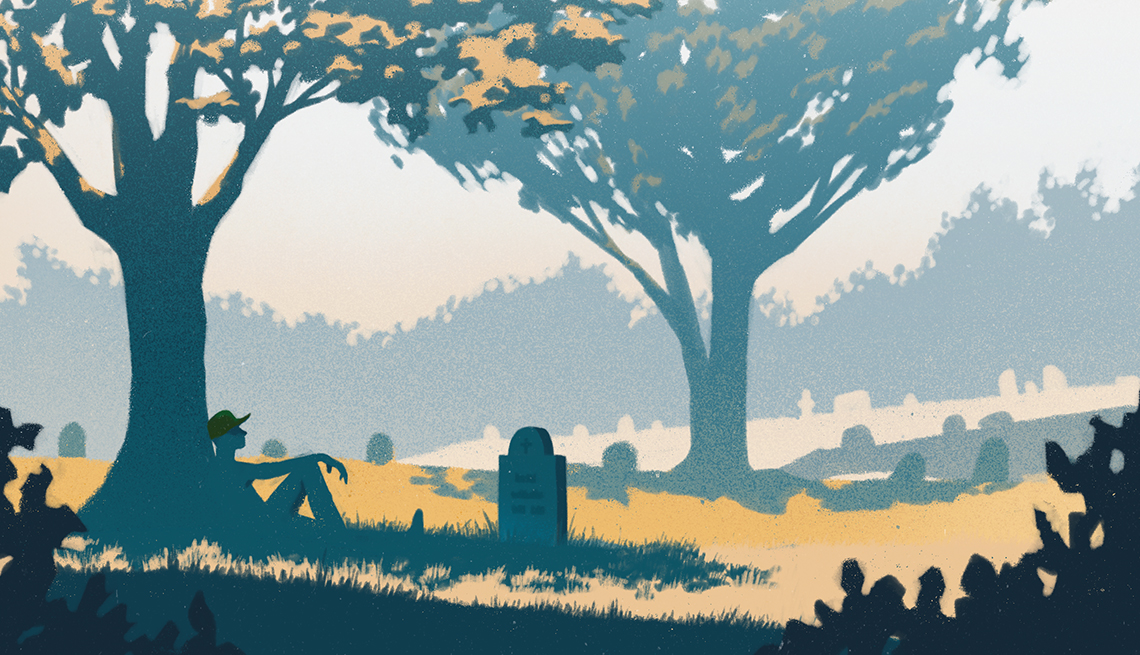
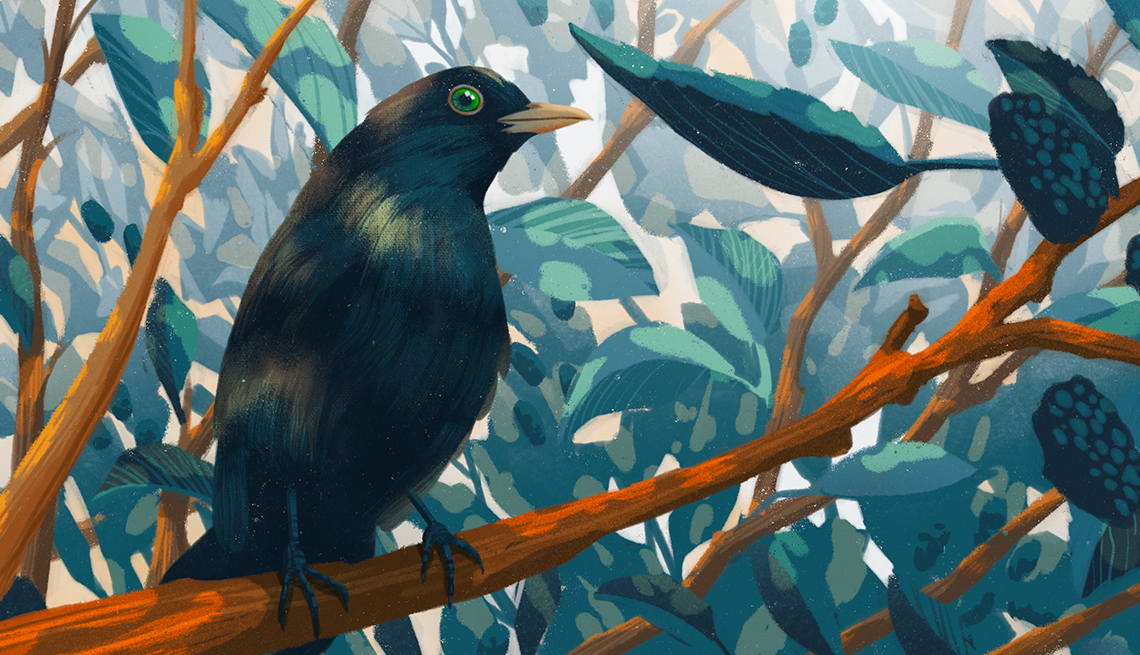
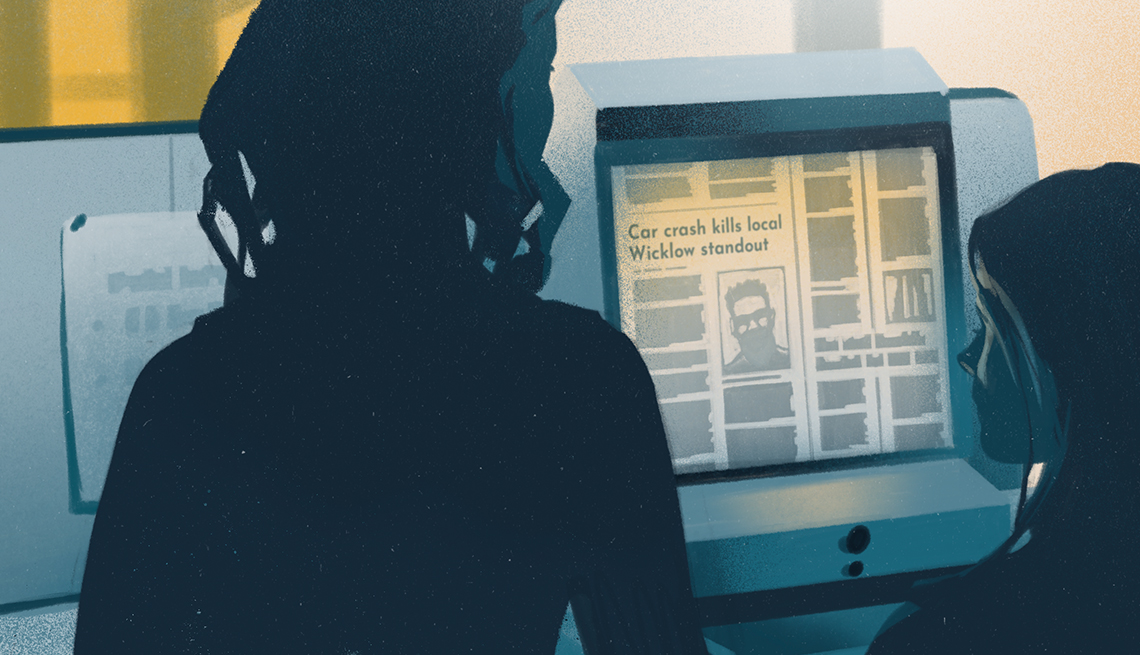
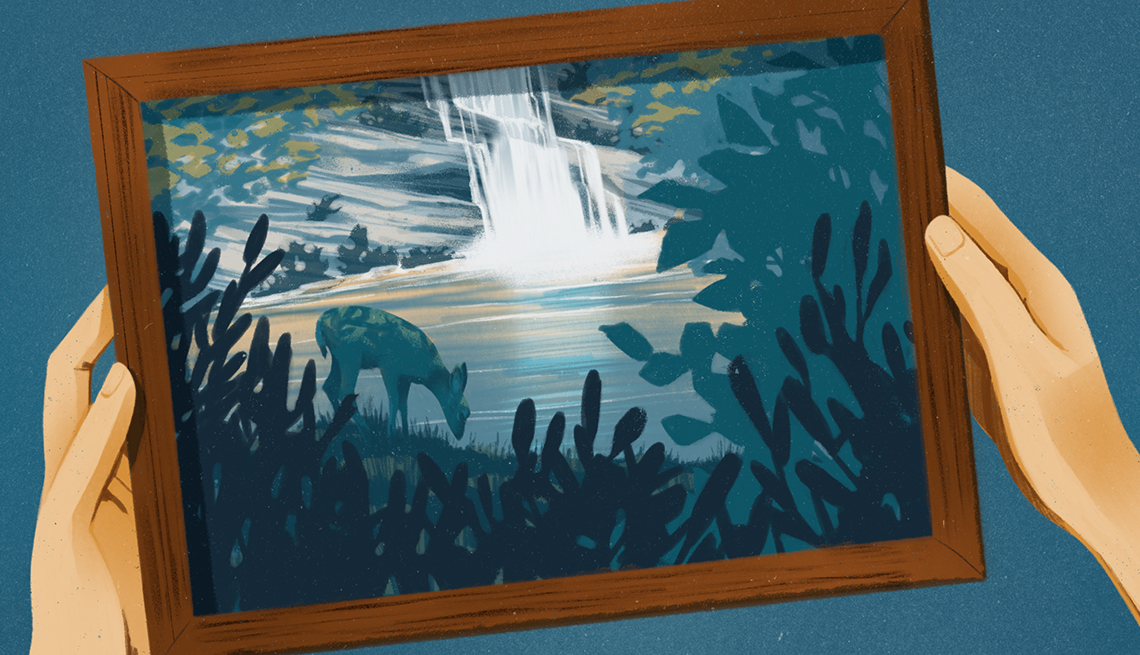
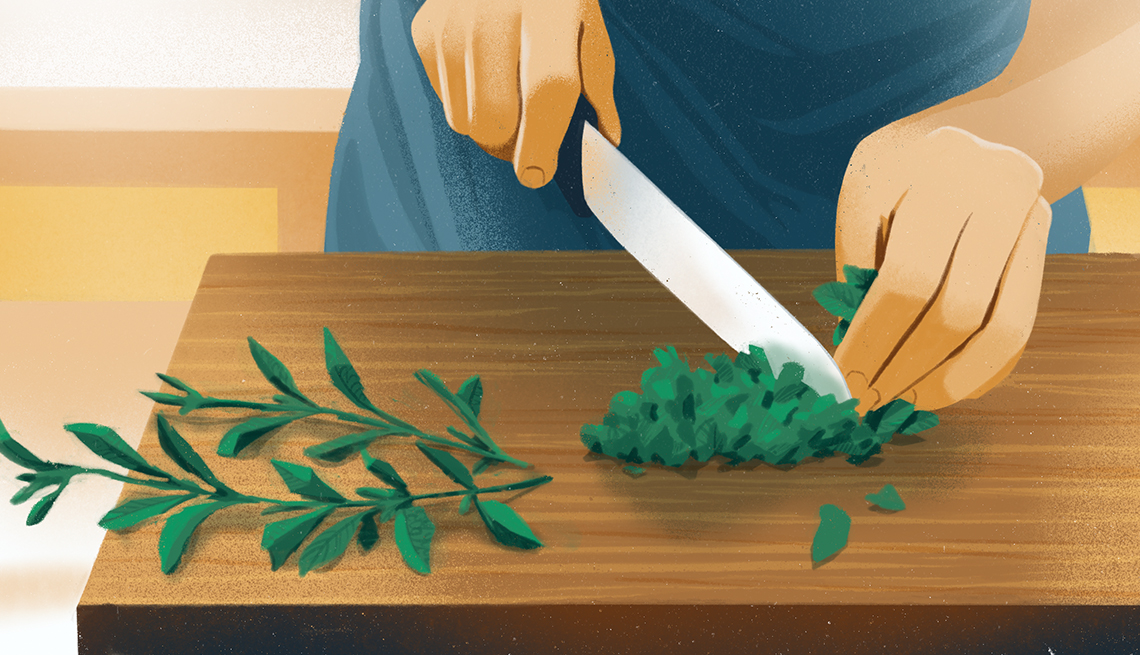
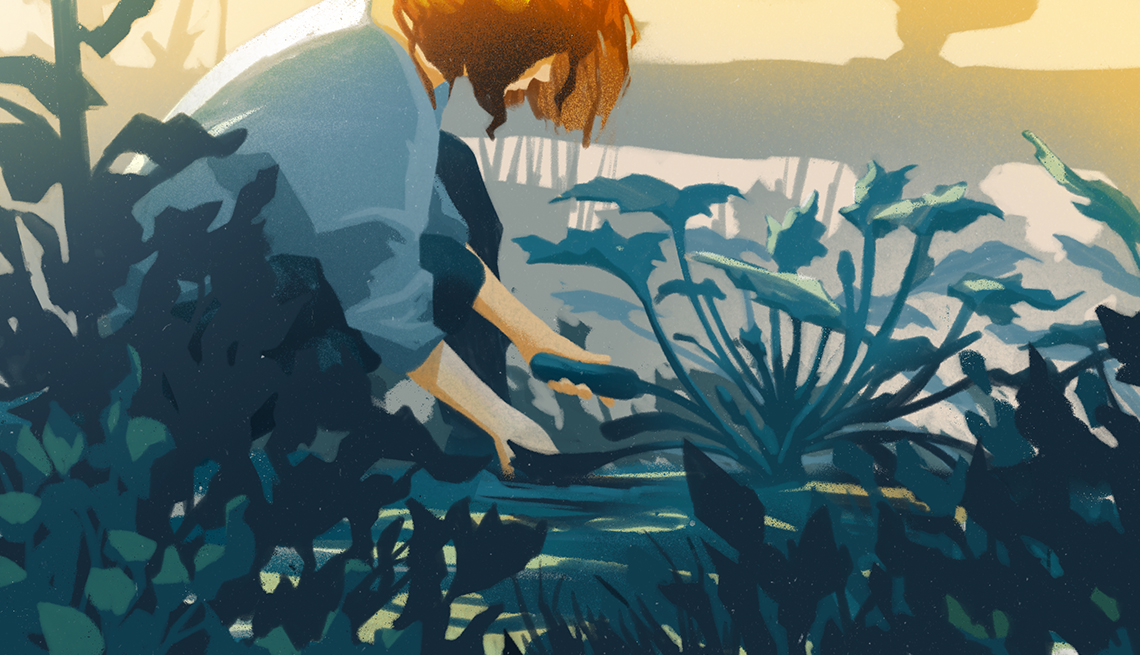
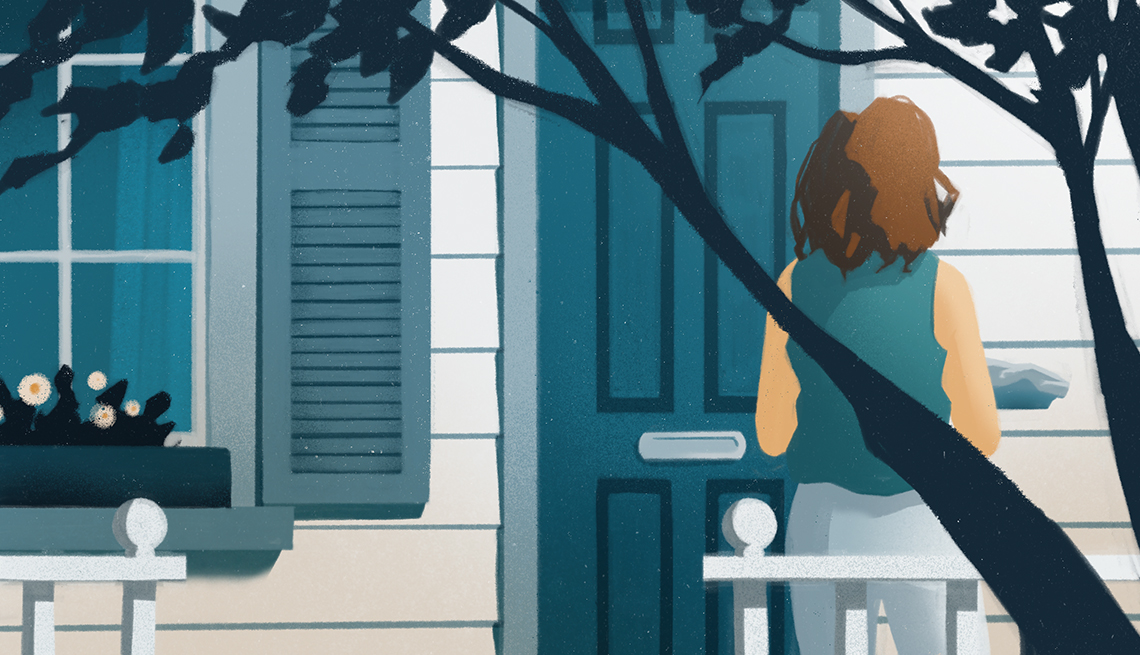

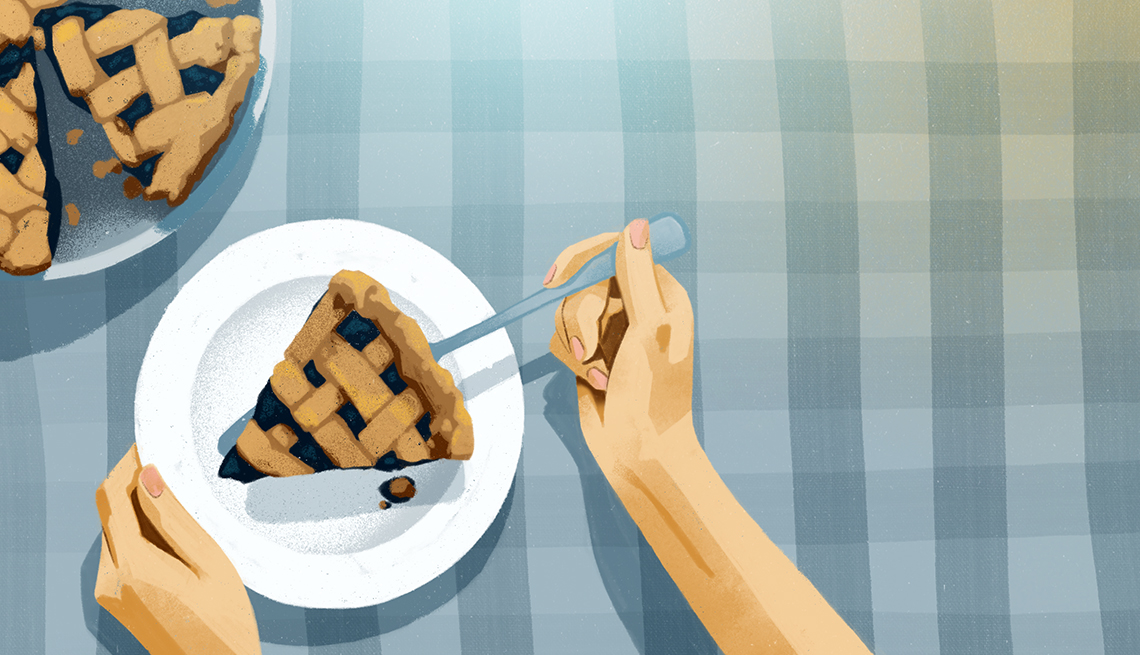
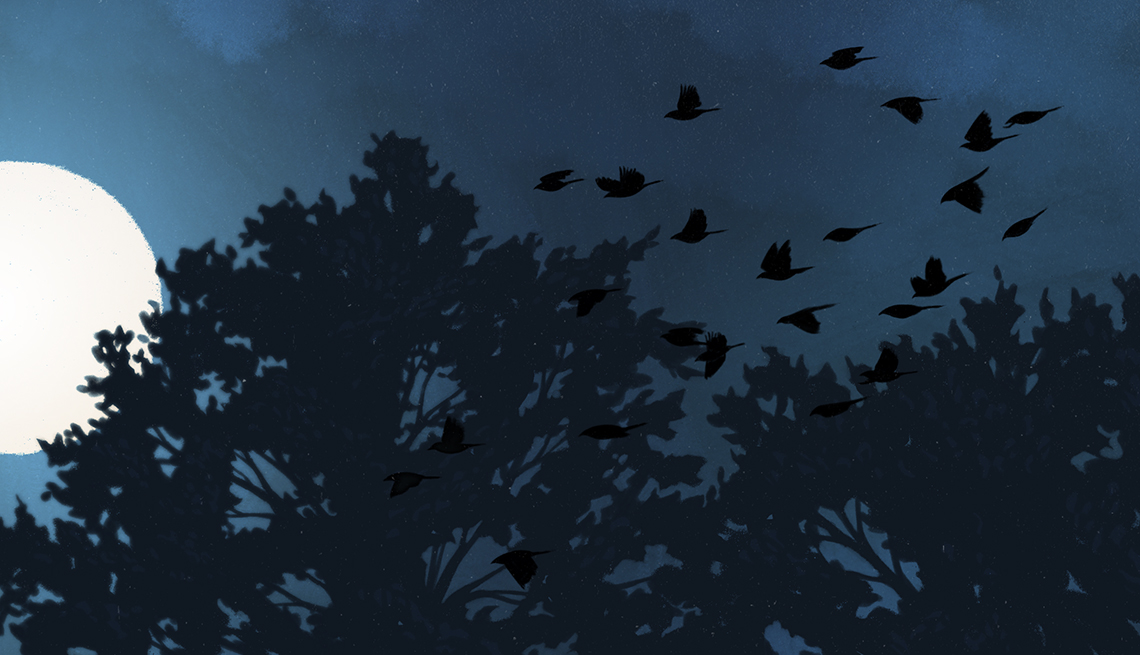
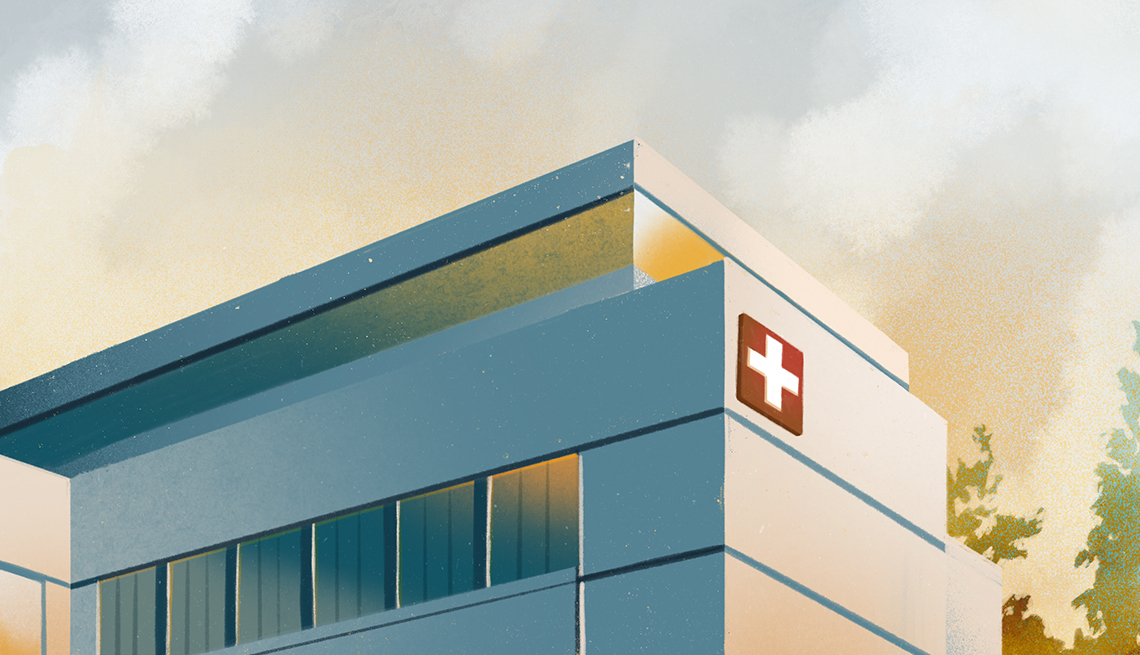
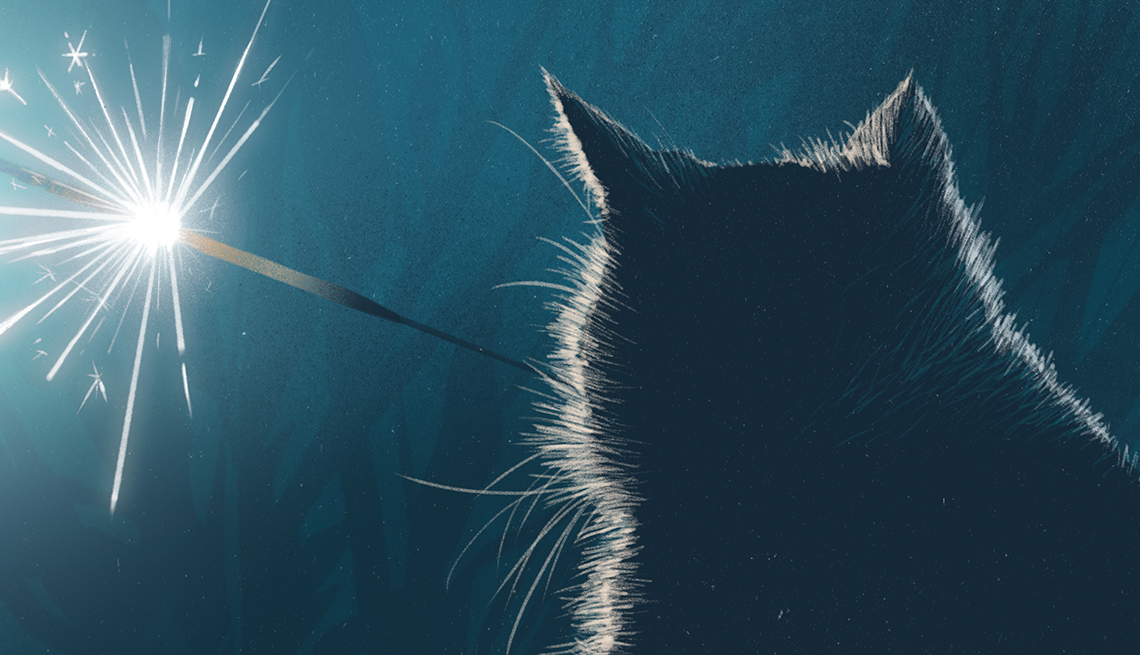
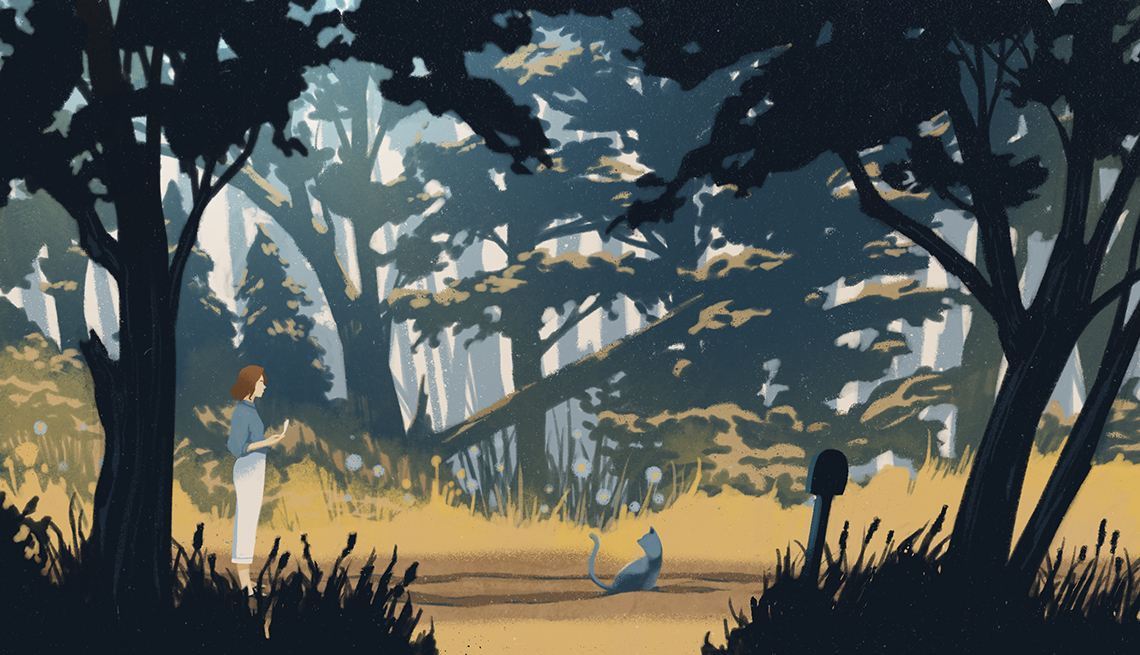
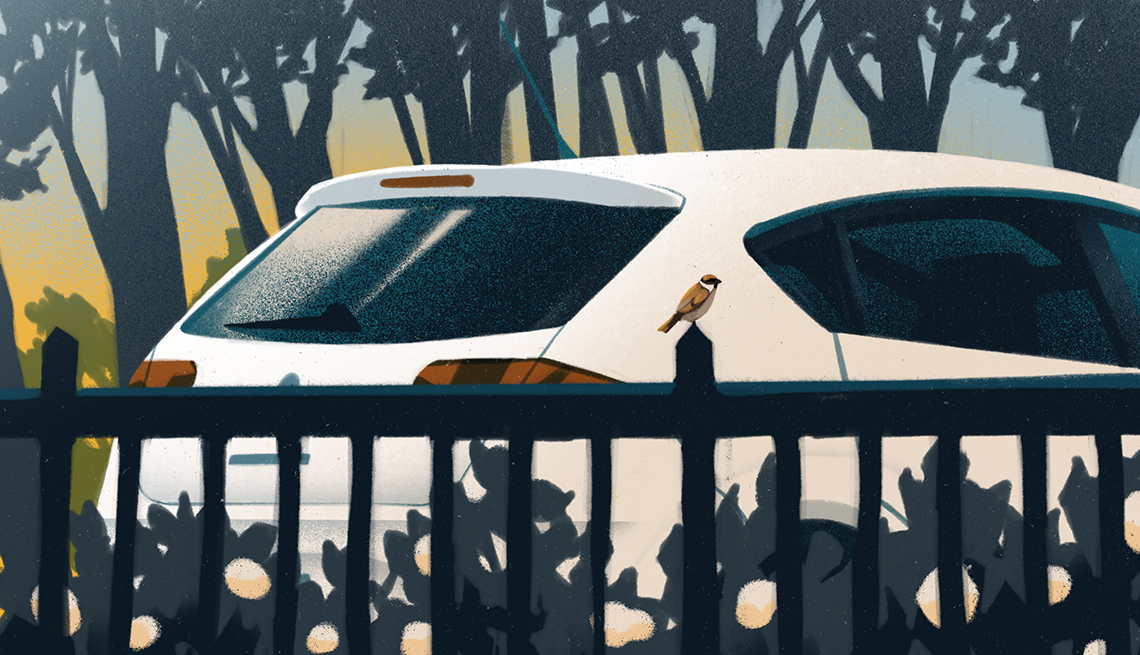







More From AARP
Free Books Online for Your Reading Pleasure
Gripping mysteries and other novels by popular authors available in their entirety for AARP members